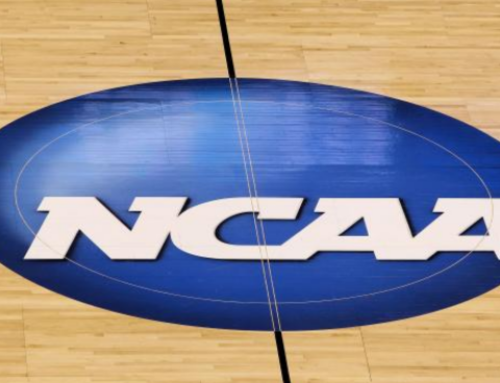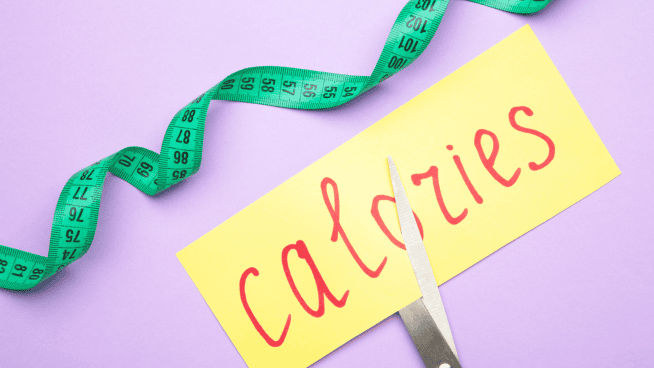How to Change Your Basketball Body Language for the Better
You don’t have to speak to send a message.
While there’s no section for it in the box score, body language can have a huge impact on an athlete’s play and the success of their respective team.
Bad Body Language
Bad body language tells both teammates and opponents you can be easily rattled and distracted, while good body language screams focus, energy and mental toughness.
Don Showalter, Director of Coach Development for USA Basketball and Head Coach of the USA Basketball Junior Men’s National Team, recently spoke on the topic of basketball body language at a Cavaliers Academy camp in Strongsville, Ohio.
“I go watch literally thousands of players each year and (watch) how they communicate with their body language when they’re sitting on the bench, how they communicate with their body language with their coach when he talks to them. Those things are very important, and what they do is portray what kind of person that player is. We tell our USA players all the time on the junior national team, if you have bad body language, poor body language on a consistent basis, you will never play for us. First of all, it’s a strong way to get across the fact that you have an attitude that’s not really what we want. Poor body language shows us that you’re susceptible to what goes on on the court and you can’t play through things. I think young kids need to know that,” Showalter said.
Acts of bad body language can often be spotted from across the gym. They include hanging your head, sulking, slouching, throwing tantrums, looking disinterested or lackadaisical, rolling your eyes when a coach is speaking to you, etc. Acts like this, whether they be on the court or on the bench, send messages of selfishness, immaturity and fragility.
Winning Body Language
Avoiding these acts will automatically make your body language more “neutral,” but what qualifies as “winning” body language? What can a player do in terms of their body language to stand out in a positive manner? They can start with thinking about being a great teammate at all times. If this is your guiding principle, you’re going to naturally exhibit a lot of excellent body language. High five them. Pump them up. Pick them up off the floor. Stay in their ear with encouragement through thick and thin. Listen to them when they talk. Be invested in their performance.
“We emphasize all the time to be great teammates…How are you when your teammate comes off the court? How are you when you go in? Do you encourage them? Are you a positive guy, a positive role model? All that says a lot about who you are as a person, but it also goes a long way towards how your team does,” says Showalter, who’s coached players like Bradley Beal, Aaron Gordon and Justise Winslow before they were stars. “If you’re sitting on the bench, you’re into the game, you know what’s going on, you’re watching the player you’re gonna guard when you come into the game so you know his tendencies. How are you when the coach talks to you? Are you a guy who looks away from him, or are you a guy who knows how to look a guy in the eye when you communicate? Young people don’t really know how to communicate. So we teach (our players) to look them in the eye, follow their direction, (and) listen. Listening is a choice. You don’t just wait for a turn to talk.”
It’s one thing to simply avoid bad body language, but acting with great body language on a consistent basis can help an athlete take themselves and their team to the next level.
READ MORE:
RECOMMENDED FOR YOU
MOST POPULAR
How to Change Your Basketball Body Language for the Better
You don’t have to speak to send a message.
While there’s no section for it in the box score, body language can have a huge impact on an athlete’s play and the success of their respective team.
Bad Body Language
Bad body language tells both teammates and opponents you can be easily rattled and distracted, while good body language screams focus, energy and mental toughness.
Don Showalter, Director of Coach Development for USA Basketball and Head Coach of the USA Basketball Junior Men’s National Team, recently spoke on the topic of basketball body language at a Cavaliers Academy camp in Strongsville, Ohio.
“I go watch literally thousands of players each year and (watch) how they communicate with their body language when they’re sitting on the bench, how they communicate with their body language with their coach when he talks to them. Those things are very important, and what they do is portray what kind of person that player is. We tell our USA players all the time on the junior national team, if you have bad body language, poor body language on a consistent basis, you will never play for us. First of all, it’s a strong way to get across the fact that you have an attitude that’s not really what we want. Poor body language shows us that you’re susceptible to what goes on on the court and you can’t play through things. I think young kids need to know that,” Showalter said.
Acts of bad body language can often be spotted from across the gym. They include hanging your head, sulking, slouching, throwing tantrums, looking disinterested or lackadaisical, rolling your eyes when a coach is speaking to you, etc. Acts like this, whether they be on the court or on the bench, send messages of selfishness, immaturity and fragility.
Winning Body Language
Avoiding these acts will automatically make your body language more “neutral,” but what qualifies as “winning” body language? What can a player do in terms of their body language to stand out in a positive manner? They can start with thinking about being a great teammate at all times. If this is your guiding principle, you’re going to naturally exhibit a lot of excellent body language. High five them. Pump them up. Pick them up off the floor. Stay in their ear with encouragement through thick and thin. Listen to them when they talk. Be invested in their performance.
“We emphasize all the time to be great teammates…How are you when your teammate comes off the court? How are you when you go in? Do you encourage them? Are you a positive guy, a positive role model? All that says a lot about who you are as a person, but it also goes a long way towards how your team does,” says Showalter, who’s coached players like Bradley Beal, Aaron Gordon and Justise Winslow before they were stars. “If you’re sitting on the bench, you’re into the game, you know what’s going on, you’re watching the player you’re gonna guard when you come into the game so you know his tendencies. How are you when the coach talks to you? Are you a guy who looks away from him, or are you a guy who knows how to look a guy in the eye when you communicate? Young people don’t really know how to communicate. So we teach (our players) to look them in the eye, follow their direction, (and) listen. Listening is a choice. You don’t just wait for a turn to talk.”
It’s one thing to simply avoid bad body language, but acting with great body language on a consistent basis can help an athlete take themselves and their team to the next level.
READ MORE:











